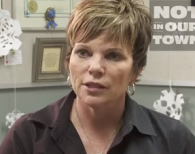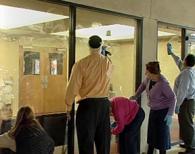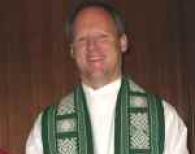"Our students have become activists, often times they don't have to tell on anyone for bullying, they just handle it themselves, they intervene themselves. You'll walk around this campus and you'll hear kids saying, 'Hey, not in our school.' It's our theme and they live it."
—Lauri Massari, Del Sur Middle School counselor
Watch "Lauri Massari: How We Started Not In Our School"
Learn how one middle school counselor created an anti-bullying program at her school and spread it to the entire community.
This is a DVD extra from the PBS program, Not In Our Town: Class Actions. For more information on the film, visit niot.org/ClassActions.
California
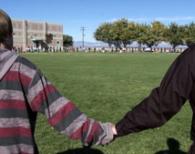
On the edge of the Mojave Desert in California, educators, political leaders, and students face the dangers of bullying after teen suicides devastate two nearby towns. A local middle school counselor initiates an anti-bullying program throughout the district and students take the lead in standing up to hate in their community. This story is part of the Not In Our Town program, Class Actions, that premieres nationwide on PBS stations in February 2012.
What began as one educator’s effort to create a safer environment for her middle school campus blossomed into a citywide movement.
“We had two suicides that happened within 50 miles of our school and our town,” Del Sur School counselor Lauri Massasri says in Class Actions. “When something like this happens so close to your own community it's a wake-up call and you realize that this could happen to any one of us and we've got to do something a little bit more because apparently what we were doing isn’t working isn’t enough.”
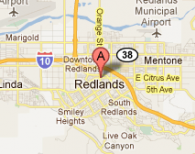
Redlands, a diverse city of 70,000 in California’s Inland Empire, has a city motto: “See Something, Say Something.”
“It’s so important to collaborate with the community. We need more eyes and ears, we solve crimes because someone comes forward,” said Lt. Travis Martinez, Redlands Police Department.
Martinez is in charge of community policing and liaison to the city’s Human Relations Commission. He heard about Not In Our Town: Light in the Darkness through Not In Our Town’s partner, the Department of Justice Community Oriented Policing Services and is utilizing our screening kit to plan his screening and strengthen relationships within the community.
Thanks to prompting from Martinez, the city’s Human Relations Commission will screen and discuss the film on Oct. 19 at the University of Redland’s Orton Center.
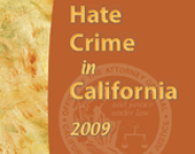
Members of San Francisco's Coalition on Hate Violence say that California's recently-released hate crime report represents a cause for deep concern, but not for reasons you might expect.
According to "Hate Crime in California 2009," released mid-July by the California Department of Justice, there was a 21.3 percent decrease in hate crime incidents last year, from 1,397 incidents in 2008 to 1,100 in 2009.
But coalition members, who represent a cross-section of law enforcement, constituency groups and non-profits, say this apparent decline may not represent an actual drop in hate crime, but a decrease in the reporting of those crimes. As we described in an earlier blog post, hate crime is often under-reported for a variety of reasons ranging from victim fear or lack of access to law enforcement to untrained or resistant police and district attorneys.
Coalition members looked at the statistics for hate crimes in San Francisco -- 80 reported events in 2008, compared to 29 in 2009 -- and said those numbers don't match what their own organizations are seeing on the ground.
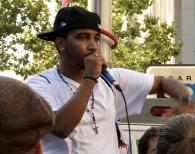
Oakland, CA: Last Thursday, July 8, former BART transit officer Johannes Mehserle was convicted of involuntary manslaughter in the Jan. 1, 2009 death of Oscar Grant, an unarmed young African American man.
As feared, that night saw rioting, looting, and destruction in the streets of downtown Oakland. And that's where the local media trained their cameras.

A Student Reflects On a Peer's Murder and His Community's Response
By Jeff Bryant

A Rabbi Reflects on the Power of Faith Communities in the Fight Against Hate
- « first
- ‹ previous
- 1
- 2
- 3
- 4
